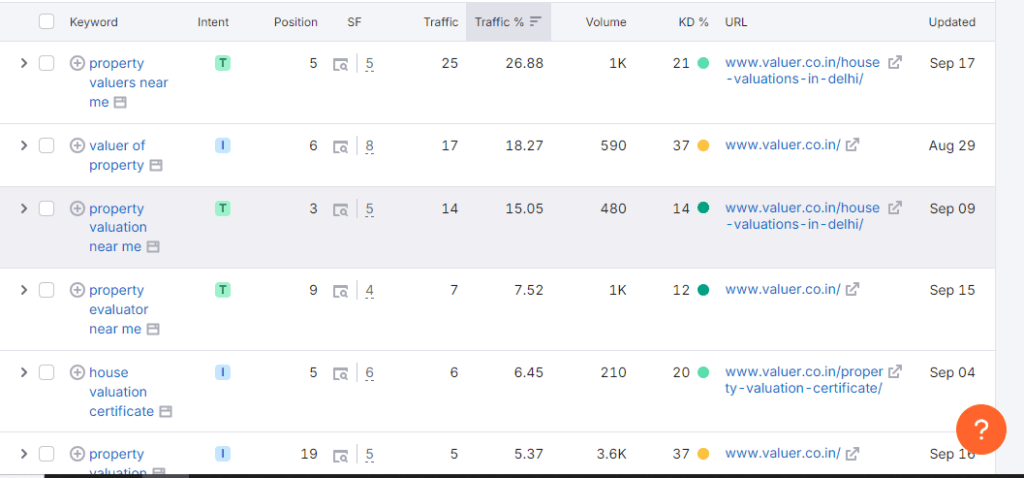If you want your business to rank higher in local search results, understanding how to conduct effective keyword research for local SEO is essential. The right keywords help you reach your target audience and drive relevant traffic to your website. This guide will walk you through the steps to find the best local keywords and optimize your site for local search success.
Why is Keyword Research Important for Local SEO?
Before diving into the process of keyword research for local SEO, it’s important to understand its significance. Keywords are the terms and phrases that people type into search engines when looking for local businesses, products, or services.By focusing on the appropriate local SEO keywords, you can:
- Improve Local Search Rankings: Using relevant keywords helps search engines understand your content, making it easier for your business to rank higher.
- Attract Targeted Traffic: Localized keywords bring more relevant visitors who are more likely to convert into customers.
- Outperform Competitors: Focusing on effective local SEO keyword strategies gives you a competitive edge in your market.

Step 1: Understand Your Target Audience
The first step in keyword research for local SEO is understanding your target audience. Knowing what potential customers are searching for helps you choose the right keywords.
- Identify Customer Intent: Think about what your customers might type into Google when looking for your products or services. Are they looking for “best coffee shops near me” or “affordable plumbing services in [city]”?
- Analyze Customer Pain Points: Consider what problems your customers are trying to solve. This can help you identify long-tail keywords that are more specific and less competitive.

Step 2: Use SEO Tools to Find Local Keywords
There are several tools available that make keyword research for local SEO easier. These tools can help you discover keywords that have good search volume and are relevant to your business.
- Google Keyword Planner: A great tool for finding local keywords. You can filter results based on location to find the best keywords for your city or region.
- Ahrefs and SEMrush: These tools provide in-depth analysis of keyword difficulty, search volume, and competition.
- Moz Local: Specifically designed for local businesses, Moz Local can help you find keywords that will boost your local search presence.

Step 3: Focus on Long-Tail Keywords
Long-tail keywords are more detailed and generally face less competition. They are particularly valuable for local SEO keyword strategy because they often indicate a higher intent to purchase.
- Examples of Long-Tail Keywords: Instead of targeting a generic keyword like “Italian restaurant,” try “best Italian restaurant in downtown Chicago.”
- Why Long-Tail Keywords Work: These keywords may have lower search volumes, but they attract highly targeted traffic, which is more likely to convert.
Step 4: Analyze Competitor Keywords
Understanding what keywords your competitors are targeting is a crucial part of keyword research for local SEO. Analyzing competitor keywords can provide insights into what’s working and what you can improve.
- Identify Top Competitors: Use tools like Ahrefs or SEMrush to find out which keywords your competitors rank for.
- Look for Gaps and Opportunities: Find keywords that your competitors rank for but you don’t, and look for low-competition keywords that can give you an advantage.

Step 5: Optimize Your Content with Local Keywords
Once you’ve gathered a list of relevant local keywords, it’s time to incorporate them into your website content. This is a vital step in your local SEO keyword strategy.
- Include Keywords in Key Areas: Use your primary keywords in the page title, meta description, headings, and throughout the body content.
- Create Location-Specific Pages: If your business operates in multiple locations, consider creating a separate page for each location and optimize each page with relevant keywords.
- Incorporate Keywords Naturally: Steer clear of keyword stuffing, as it can harm your rankings. Focus on using keywords in a natural, conversational manner.

Step 6: Monitor and Adjust Your Keyword Strategy
Keyword research isn’t a one-time task; it’s an ongoing process. To stay ahead of the competition, regularly monitor the performance of your local SEO keywords and adjust your strategy as needed.
- Use Google Search Console: Monitor which keywords are driving traffic and adjust your strategy based on performance data.
- Update Content Regularly: Keep your content fresh and relevant by regularly updating it with new keywords, information, and insights.

Conclusion
Mastering keyword research for local SEO is essential for any business looking to boost its local search visibility and attract more customers. By understanding your audience, using the right SEO tools, focusing on long-tail keywords, analyzing competitors, and optimizing your content, you can create a winning local SEO keyword strategy. Remember to monitor your performance regularly and make adjustments to stay on top of search results.
Ready to dive deeper into local SEO? Check out our other guides on Local SEO Strategies for Small Businesses and learn more about how to optimize your online presence.





